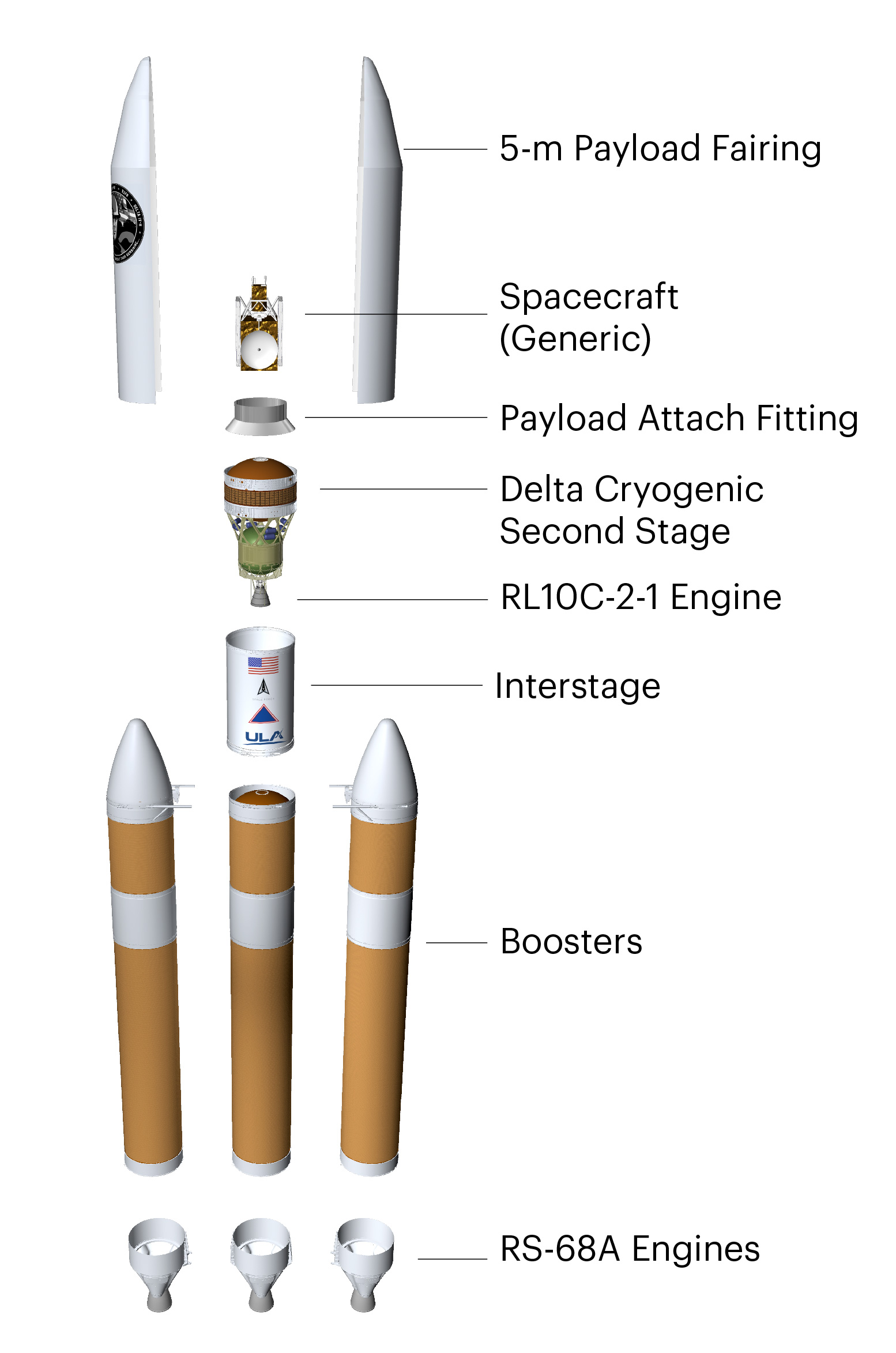Delta IV Heavy Successfully Launches NROL-91
A United Launch Alliance (ULA) Delta IV Heavy rocket performed the NROL-91 mission in service to the National Reconnaissance Office (NRO) and the Space Force's Space Systems Command (SSC). Liftoff occurred from Space Launch Complex-6 at Vandenberg
Space Force Base, California.
Launch Date and Time: Sept. 24, 2022 at 3:25:30 p.m. PDT (6:25:30 p.m. EDT; 2225:30 UTC).
Go Delta IV Heavy! Go NROL-91!
Launch Webcast
Live updates
To keep up to speed with updates to the launch countdown, dial the ULA launch hotline at 1-877-852-4321.
Join the conversation at Twitter, Facebook, Instagram and
LinkedIn
#DeltaIVHeavy #NROL91
Mission Overview
A United Launch Alliance (ULA) Delta IV Heavy rocket is launching the NROL-91 mission for the National Reconnaissance Office (NRO). Liftoff will occur from Space Launch Complex-6 at Vandenberg Space Force Base, California.
When the United States needs eyes and ears in critical places where no human can reach – be it over the most rugged terrain or through the most hostile territory – it turns to the NRO. The NRO is the Department of Defense organization responsible for developing, acquiring, launching and operating America’s reconnaissance satellites, as well as operating associated data processing facilities in support of national security.
The NRO uses a variety of satellites to meet mission needs—from small sats to more traditional, larger satellites. This allows the NRO to pursue a hybrid architecture designed to provide global coverage against a wide range of intelligence requirements, carry out research and development efforts, and assist emergency and disaster relief efforts in the U.S. and around the world. The NRO never loses focus on who they are working to protect: our nation and its citizens.
Launch Vehicle
Payload Fairing (PLF)
The payload fairing is a composite bisector (two-piece shell), 5-meter diameter fairing. The PLF encapsulates the spacecraft to protect it from the launch environment on ascent. The vehicle’s height, with the 63-ft (19.2-m) long PLF, is approximately 233 ft (71.0 m).
Delta Cryogenic Second Stage
The Delta Cryogenic Second Stage is a cryogenic liquid hydrogen/liquid oxygen-fueled vehicle, powered by a single RL10C-2-1 engine that produces 24,750 lbs (110.1 kilo-Newtons) of thrust. The DCSS propellant tanks are structurally rigid and constructed of formed aluminum plate, spun-formed aluminum domes and aluminum ring forgings. The tanks are insulated with a spray-on insulation and helium-purged insulation blankets. An equipment shelf attached to the aft dome of the DCSS liquid oxygen tank provides the structural mountings for vehicle electronics.
Booster
The three Delta IV Heavy common booster core (CBC) tanks are structurally rigid and constructed of isogrid aluminum barrels, spun-formed aluminum domes and machined aluminum tank skirts. Delta IV booster propulsion is provided by the throttleable RS-68A engine system which burns cryogenic liquid hydrogen and liquid oxygen, with each of the three booster engines delivering 705,250 lbs (312.3 kilo-Newtons) of thrust at sea level. The booster’s cryogenic tanks are insulated with a combination of spray-on and bond-on insulation and helium-purged insulation blankets. The booster is controlled by the DCSS avionics system, which provides guidance, flight control.

Flight Profile

Space Launch Complex-6 // Processing
Space Launch Complex-6 (SLC-6), the West Coast home of the Delta IV rocket at Vandenberg Space Force Base in California, is a classic launch pad design with a Fixed Umbilical Tower (FUT) and a Mobile Service Tower (MST). The stages of the rocket are assembled in the nearby Horizontal Integration Facility (HIF), then rolled to the pad for attachment of the payload, final testing and the countdown. The site also features a Mobile Assembly Shelter (MAS) that provides full enclosure of the rocket from the weather during pre-launch preparations. The MST and the MAS are retracted to unveil the rocket prior liftoff.

1. Remote Launch Control Center (RLCC)
Launch Control Center &
Mission Director’s Center
2. Horizontal Integration Facility (HIF)
Receiving, Inspection & Second
Stage Integration
3. Spaceflight Processing Facility
Spacecraft Processing,
Testing & Encapsulation
4. Mobile Service Tower (MST)
Launch Vehicle Integration &
Testing, Spacecraft Mate &
Integrated Operations
Production

1. Canoga Park, CA
RS-68A Engine Fabrication
at Aerojet Rocketdyne
2. Denver, CO
ULA Headquarters &
Design Center Engineering
3. Decatur, AL
Booster, Payload Fairing and
Second Stage Fabrication
4. West Palm Beach, FL
RL10C-2-1 Engine Fabrication at
Aerojet Rocketdyne


